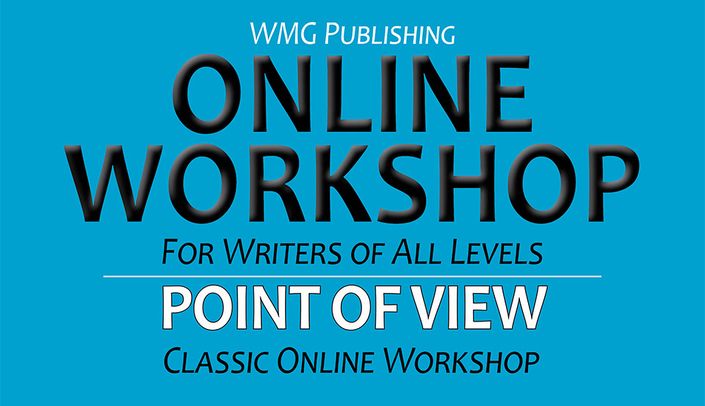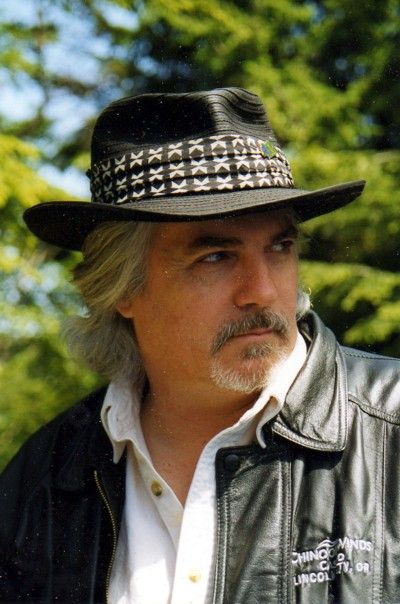
Classic Point of View
Learn some of the many techniques of writing powerful point of view in your fiction.
Understanding every detail about how to use a character point of view.
Most writers will think, "I don't need this. I know Point of View. It's not hard." And yet most of those writers still work under their old beliefs and learning they got from non-writers like English teachers.
The truth simply put: Most fiction writers know little or nothing about the power of viewpoint.
As with the Speed workshop, this area Kris and I have avoided for two reasons. First, we don't believe many will sign up for it, believing writers think they know it all about viewpoint. Second, this is such an advanced technique area, it will be difficult to teach.
But now we are challenged by the idea of teaching this for fiction writers and feel we have a way to do it effectively finally.
First off, this will be one of those "awareness" workshops. Until you see the power of what a major writer is doing with viewpoint and what they are doing and how they are doing it, you will miss it and not be able to use the technique yourself. So we're going to show it to you and explain how you can use it and when.
And then help you practice it.
Just a few things this workshop will cover for fiction writers.
--- All the standard viewpoints and tenses. What they are used for, when to use them, when not to, and so on. (We won't be talking much English-teacher language because honestly, that doesn't help. We will explain this all in fiction writing terms for the most part.)
--- In the Advanced Depth workshop we touched on summary openings, and voice openings. But we stayed away from viewpoint and why those openings work. Here we will show you why they work and how to do them purposefully. Very, very powerful tools if you understand viewpoint.
--- Plotting techniques with viewpoints, from single viewpoints to hold readers to multiple viewpoints. Including first person and third person viewpoints in the same book and why and how to use that technique effectively. Plotting techniques usually get forgotten by writers when picking viewpoints. A simple correct choice in the beginning of a viewpoint or multiple viewpoints can make a book come alive. And if you have taken the teams workshop, this workshop is a logical extension of that workshop as well.
--- You ever wonder why floating viewpoints work in the hands of a master and no reader notices, yet in the hands of a lower-skilled writer, a floating viewpoint is a mistake and everyone notices? This workshop will explain floating viewpoints, why they are used, and how to do them when you need to. And why you would ever need to. Again, a very powerful tool to have at your fingertips that most fiction writers have always been warned away from.
--- Reader awareness will be a major part of this workshop as well, from understanding how a viewpoint can be pushed in close or pulled back depending on what a reader will expect. Also how readers react to certain viewpoints in certain places and knowing how to use that reaction to your own use. Tightening in a viewpoint at one point in a story and pulling it back in another remains a very powerful writing skill. We will help you understand how to do it, why to do it, and when to do it in a story.
--- And a ton more. Far more than we can list here.
So if you have any fear of any viewpoint, if you think first person viewpoint is actually a more immediate viewpoint for a reader, if you think "omniscient" viewpoint actually exists in fiction, then you really, really need this workshop.
It will be an eye-opener and jump your writing skills forward, we can promise that.
Your Instructor

With over twenty-three million copies of his books in print, USA Today bestselling writer Dean Wesley Smith now brings you original fiction every month for the past three years in his own magazine, Smith’s Monthly.
Dean wrote over twenty-five original Star Trek novels, the only two original Men in Black novels, plus Spider-Man, X-Men, Iron Man novels, and others. He wrote many gaming novels including Final Fantasy.
He wrote novels and stories under almost fifty pen names and did scripts for Hollywood as well as being an editor for various magazines. He lives in Las Vegas with his wife, writer Kristine Kathryn Rusch. You can follow his writing life at www.deanwesleysmith.com
Course Curriculum
-
StartPOV Week #1, Session #1... Every word of every story is told through a character. (5:42)
-
StartPOV Week #1, Session #2... Basics: First, second, and third person. (6:02)
-
StartPOV Week #1, Session #3... Basic: Past or Present Tense... Remember the readers. (5:32)
-
StartPOV Week #1, Session #4... Basics: Information flow. (6:44)
-
StartPOV Week #1, Session #5... Some silliness (6:55)
-
StartPOV Assignment #1 (3:50)
-
StartPOV Assignment #1 Response (3:04)
-
StartPOV Week #2, Session #1... Point of View glitches. (5:47)
-
StartPOV Week #2, Session #2... Cleaning out some basic problems. (6:32)
-
StartPOV Week #2, Session #3... Likable characters. (6:24)
-
StartPOV Week #2, Session #4... Getting into a character... basics. (5:12)
-
StartPOV Week #2, Session #5... Setting in POV (6:16)
-
StartPOV Assignment #2 (3:41)